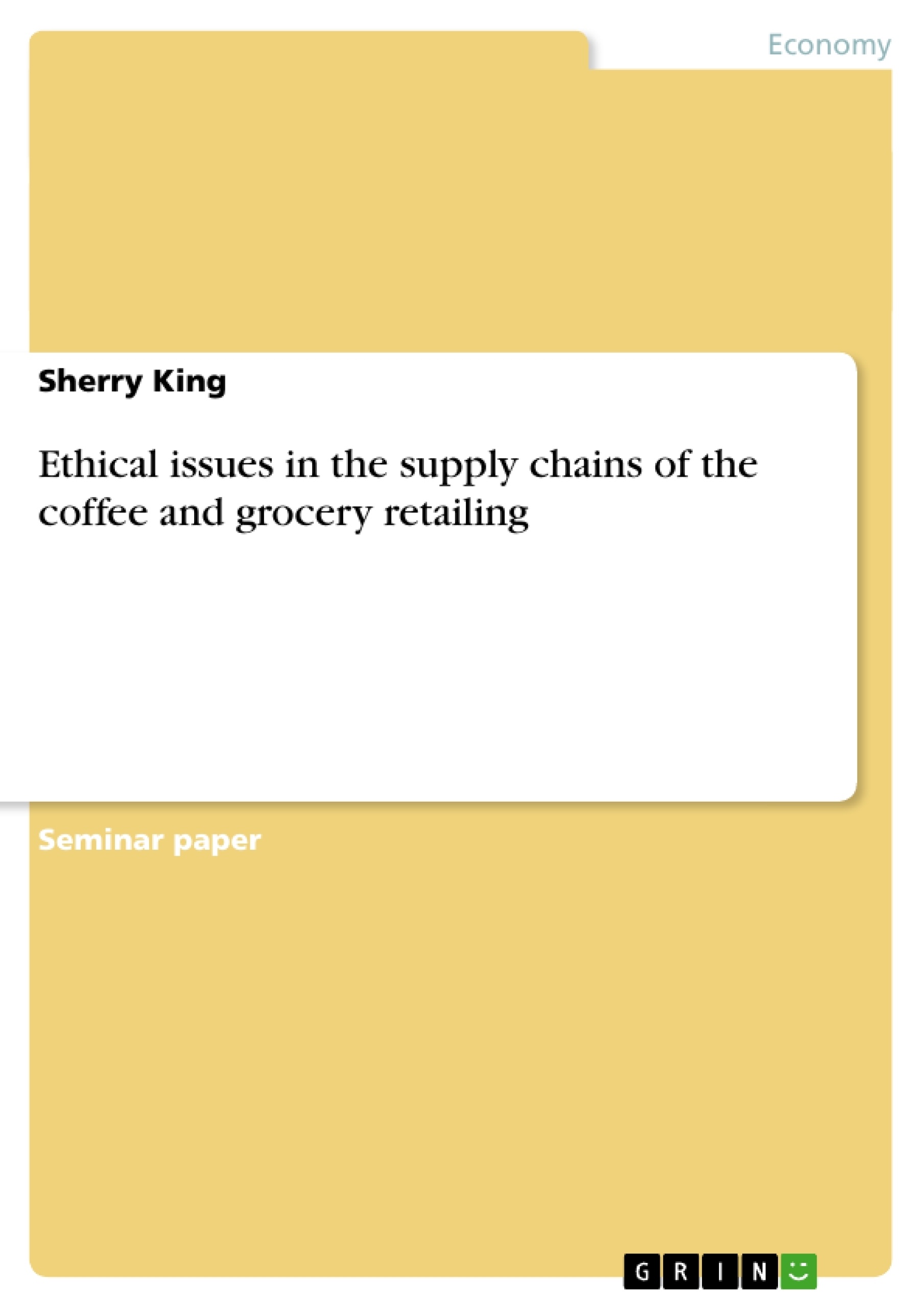The aspect of being an ethical business is not enough in itself in the 21st Century. In today’s society, all major as well as leading business entities are not just held by what they make abut also by what they keep. Investors, Consumers, business partners, media organizations and regulators, and media organizations have evolved to expect that a business as well as its whole supply chain uphold ethical standards. It is a matter of time that a business or a firm finds itself or its activities in a supply chain system that is experiencing serious charges of violating ethical issues (McGraw 2008, p. 29). In most cases if this kind of scenario takes place even the biggest firms within the supply chain are most likely to get dragged into the blame. The rise of scandals such as the supplier-generated ethics one can be said to be the major risks that most big brands face in the current business work today. Such scandals tend to great damage o n major brands as well as the upcoming ones in both the global and local business environment.
Organizations seek to develop partnerships and various forms of integration and links with trading partners for efficiency and effectiveness. These links can be described as business relationships aimed at ensuring every activity in the respective organizations does not stall at any one point (Varley 2001, p. 15).
Table of Contents
- Introduction
- Ethical Issues in the Supply Chains
- Ethical Issues in the Supply Chains of Coffee Retailing
- The environment cleanliness issue
- The Labour Utilized
- Ethical sourcing
- Ethical Issues in the Supply Chains of Grocery Retailing
- Environment cleanliness
- Labour force
Objectives and Key Themes
This document explores the ethical issues present within the supply chains of the coffee and grocery retail industries. It analyzes the challenges faced by organizations in upholding ethical standards throughout the supply chain, particularly focusing on environmental cleanliness and labor practices. The text examines the importance of ethical sourcing and the consequences of neglecting ethical considerations in supply chain management.- Environmental Sustainability
- Ethical Labor Practices
- Ethical Sourcing
- Social Responsibility
- Supply Chain Management
Chapter Summaries
The introduction outlines the growing importance of ethical considerations in business practices, particularly within supply chains. It emphasizes the need for ethical behavior throughout the chain to maintain business reputation and avoid potential risks. The chapter on ethical issues in the supply chains of coffee retailing analyzes two main challenges: environmental cleanliness and the use of labor. The environment cleanliness issue examines the challenges of reducing carbon footprint throughout the coffee supply chain, from growing and processing to packaging and distribution. The chapter highlights the challenges of upholding ethical standards in areas like the use of greenhouses and chemical treatments. The use of child labor in the coffee industry is discussed as an unethical practice that exploits vulnerable individuals for profit. The section on ethical sourcing explores the growing trend of companies taking social responsibility for actions occurring throughout their supply chains, even if they are not directly responsible. This practice is presented as a way to maintain positive brand perception and foster ethical business practices. The chapter on ethical issues in the supply chains of grocery retailing focuses on two key issues: environment cleanliness and labor force. The text highlights the challenges of balancing environmental sustainability with profit maximization, particularly in the context of controlled agriculture and genetically modified products. It also emphasizes the importance of ethical labor practices in the grocery sector, including the need to address the issue of child labor.Keywords
This document focuses on key themes related to ethical issues in supply chain management, particularly in the coffee and grocery retailing industries. The text delves into the importance of environmental sustainability, ethical labor practices, and ethical sourcing within these supply chains. It explores the social responsibilities of organizations operating within these industries and the potential challenges and opportunities associated with upholding ethical standards.- Quote paper
- Sherry King (Author), 2011, Ethical issues in the supply chains of the coffee and grocery retailing, Munich, GRIN Verlag, https://www.grin.com/document/269806




